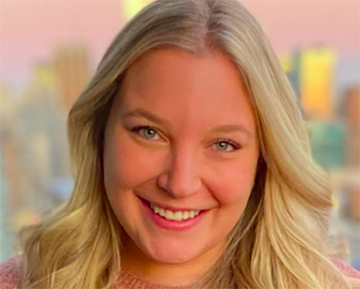Master of Arts in School & Clinical Child Psychology

Master of Arts in School & Clinical Child Psychology Overview
Improve the well-being and mental health of children, youth and families
Pursue professional training in psychological assessment, therapy and other psychosocial and instructional interventions, professional consultation and prevention. Opportunities are available for research and professional work with infants, young children, adolescents, adults, and families.
Our MA and PhD programs in School & Clinical Child Psychology (SCCP) are designed as one coherent program. The degrees are intended to meet the academic requirements of the College of Psychologists of Ontario (CPO) for registration as a Psychological Associate (MA) or Psychologist (PhD). Learn more about the SCCP.
Graduates of the School & Clinical Child Psychology program find careers working with children, adolescents and families in school, mental health, private practice and research settings
For detailed information about the program, please consult the School of Graduate Studies Calendar.
At a Glance
Study Options
Full-time (6 sessions)
Coursework & Thesis
Clinic Placement & Practicum
Funding and Tuition
For current information about tuition fees, funding, and financial support, visit Tuition & Financial Support.
Deadlines
Applications are now closed for a Fall 2025 start.
Apply
Ready to join one of the world’s top universities? Take the next step in your academic journey and start your application to graduate studies at OISE.
Speak with our Team
Have questions about our program, admissions, financial support or career options after graduation? Our team has the answer you’re looking for. Contact us for one-on-one support.
Attend an Info Session
We host information sessions, open houses and tours throughout the year. Come discover what it's like to study at OISE. Explore campus and meet our community.
Why I Chose Applied Psychology & Human Development

Shawna Grossman (Master of Arts 2021)
School and Clinical Child Psychology (SCCP)
"The SCCP program at OISE offers an ideal balance of encouraging their students to grow clinically and professionally while simultaneously supporting them throughout the learning process. Above all, I especially admire OISE’s commitment to fostering a supportive and inclusive community, enabling students to feel like they always have someone to turn to with questions or concerns."
Master of Arts in School & Clinical Child Psychology Admission Requirements
General Admission Requirements
Please visit the OISE Admissions website for detailed information about the application process, including general minimum admission requirements and supporting documents.
Program-Specific Information (Minimum Admission Requirements)
- Applicants are admitted under the General Regulations of the School of Graduate Studies.
- An appropriate bachelor’s degree in psychology or equivalent with standing equivalent to a University of Toronto A- or better in the final year or over senior courses.
- Evidence of relevant professional experience is preferred
- Evidence of relevant research experience is preferred
Required Supporting Documents
All applicants must submit:
- Transcript(s) from each post-secondary institution attended
- Three letters of reference (two academic and one professional)
- A resume/curriculum vitae
- Applicants are asked to respond to the following questions:
- Why are you interested in the school and clinical child psychology program?
- What experience have you had working with child and youth?
- Please provide details on your research experience.
- What research topic are you interested in pursuing during your program?
- What faculty are you interested in working with and why?
Additional Program Information
Coursework
Students must complete 5.0 FCEs (including a practicum course) and a thesis.
- APD1205H Ethical Issues in Applied Psychology (0.5 FCE).
- APD1215H Psychological Assessment of School-Aged Children (0.5 FCE).
- APD1216H Psychoeducational Assessment (0.5 FCE).
- APD1218H Seminar and Practicum in School-Based Assessment, Consultation, and Intervention (0.5 FCE). The practicum portion consists of 250 hours (one day a week from September to June) and is normally taken in a school setting.
- APD1222H Approaches to Psychotherapy-Lifespan (0.5 FCE).
- APD1236H Developmental Psychopathology (0.5 FCE).
- APD1285H Psychology and Education of Children and Adolescents with Learning Disabilities (0.5 FCE).
- JOI1288H Intermediate Statistics and Research Design (RM) (0.5 FCE).
- 0.5 elective FCE.
- 0.5 FCE in Cognitive/Affective bases of behaviour from an approved course listing. Note: Students who have a 1.0 FCE in Cognitive/Affective bases of behaviour at the senior undergraduate level approved by the program may substitute an elective course for this requirement or a course in the Biological Bases of Behaviour or Social Bases of Behaviour menus, or APD3204H, Contemporary History and Systems in Human Development and Applied Psychology.
Thesis
A listing of approved Cognitive/Affective, Social, and Biological bases of behaviour courses is available on the departmental website and in the Applied Psychology and Human Development program guidelines.
In addition to the above course requirements, students who have not taken a previous child development course in their undergraduate degree program will be required to take APD1201H Childhood and Adolescent Development.
Students who have not taken a previous statistics course or its equivalent must take JOI1287H Introduction to Applied Statistics (RM).
Students must achieve a minimum of A– in at least one of APD1215H Psychological Assessment of School-Aged Children and APD1216H Psychoeducational Assessment, and must complete APD1218H Seminar and Practicum in School-Based Assessment, Consultation, and Intervention in order to remain in good standing and be permitted to continue in the program.
Failure to meet these criteria will normally result in a recommendation to the School of Graduate Studies to terminate the student's registration in the program.
Can you tell me more about the admissions process?
The SCCP core faculty members of the APHD Admissions Committee consider applications for the program. Applicants are rated on a 6-point scale, from poor (1) to outstanding (6), on their grades, faculty questions, and academic and professional references.
Relevant research and applied experience, publications and conference presentations are also considered. Each qualified applicant's file is examined independently by two core SCCP faculty members and a mean is calculated. Applicants with high rankings are short-listed.
Faculty members then select students from the short list whom they wish to sponsor. Faculty sponsorship ensures that the interests of the students match the goals of the program, and that students have a committed supervisor.
Do I need to complete the GRE when I apply to the SCCP program?
No, you are not required to submit the GRE for admission to the SCCP program.
I understand that I need to include one professional reference letter. Who is eligible to write this?
Your professional reference letter can come from anyone who has knowledge of your ability to work with children and families. Examples may include a supervisor at a volunteer setting or summer camp or an employer at a setting where you worked with children or families as part of your job (e.g., daycare centre, community recreation program).
Should I contact the professor with whom I would like to do research with?
If you are applying to the MA or PhD program, it is important to identify the professor or professor(s) whose research interests you share and refer to these professors within your faculty questions in your application.
Would you be able to clarify how many reference letters are needed?
3 (2 academic, 1 professional)
Does registration with the College of Psychologists of Ontario mean that we can only practice in Ontario? Or all over Canada?
The SCCP PhD program meets the requirements to practice in Ontario and in Canada upon successful registration at the College of Psychologists.
Do students have breaks during the program, such as winter, spring, or summer breaks?
There is a mid-winter break in March. Some of our students take extra classes that are offered in the spring and summer session.
If our GPA scale from undergrad is different than U of T do we need to submit our GPA scale or will you admissions look into it to adjust our undergrad grades to the U of T scale?
Yes our staff in the Registrar’s Office will convert your GPA
How important is it to apply for graduate external awards on your initial application?
The Admissions committee will be looking at the answers of your faculty questions; letters of reference; and previous grades (GPA).
Program Chair: Dr. Todd Cunningham
Program Faculty: Dr. Todd Cunningham, Dr. Esther Geva; Dr. Linda Iwenofu; Dr. Mary Caravias; Dr. Anne-Claude Bedard; Dr. Mark Wade; Dr. Chloe Hamza; Dr. Naomi Slonim
Questions? Please email us at oise.aphd@utoronto.ca
Program Coordinator:
Puja Variawa
puja.variawa@utoronto.ca
Ready to join one of the world’s top universities?
Take the next step in your academic journey and start your application to graduate studies at OISE.